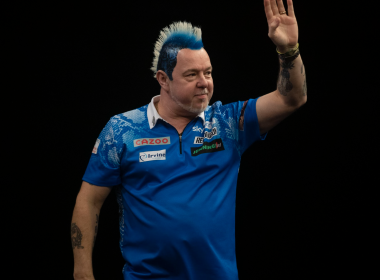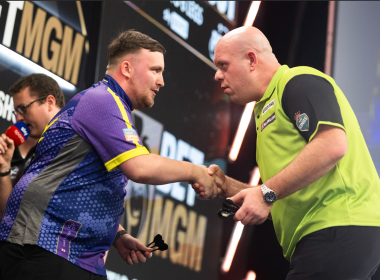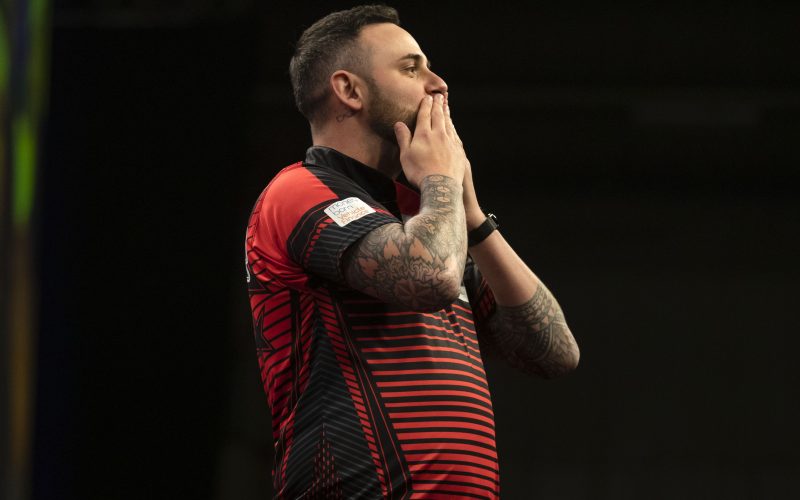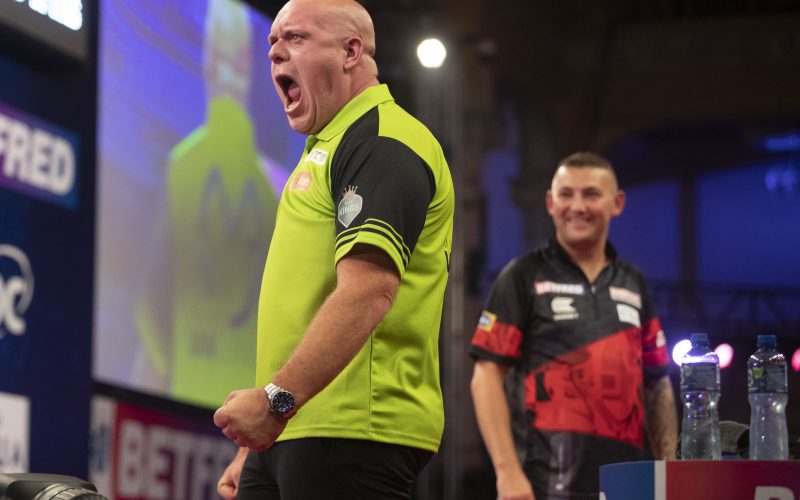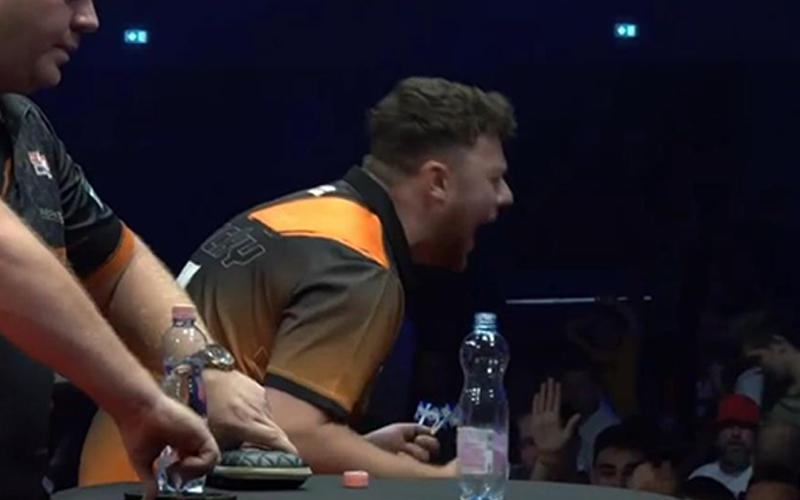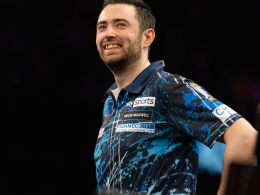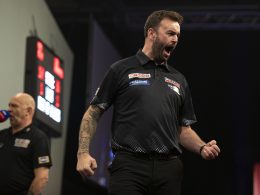Players who buck the trend, in ways data can’t always explain.
Joe Cullen claimed his 3rd European Tour title last weekend despite, by his own admission, not being at his best. In two of his five matches he averaged less than his opponent, and Cullen is fast becoming the model for finding ways to win without having to pull much from his top drawer. In February he triumphed in a Players Championship in which he posted the lowest tournament average on record for a winner. In June he reached the final of the Premier League in a campaign characterised by peaking at the right time, pinching a playoff place before coming within a whisker of landing the big prize.
Averages are not everything. Some say they don’t mean anything. Whatever you think of the usefulness of darts’ predominant statistic, the higher average corresponds with the winner of a match more than 80% of the time. There are some players who appear to buck the trend though – winning matches and sometimes even tournaments with underwhelming numbers or losing them with otherwise impressive ones. We looked at some of these enigmas – the ones who reverse the patterns more often than others.
Cullen won his 4th title of the year in Budapest, making him also the 4th most successful player on Tour this year behind only van Gerwen, Humphries and Michael Smith. On 2022 averages, Cullen stands 23rd in the world. The other serial winners (add Wright, Price and van Duijvenbode to the previous three mentioned) make up six of the top seven for highest annual averages in 2022 to date. Cullen is an outlier.
James Wade is perceived as the quintessential example over the years of doing what is required to win, picking up countless titles and dispatching player after player that is averaging more than him. As it happens, since the beginning of 2020, in Players Championship events alone he has won 27 matches in which he has had a lower average than his opponent – the second most of anybody in that time and one behind the first. The first is Cullen.
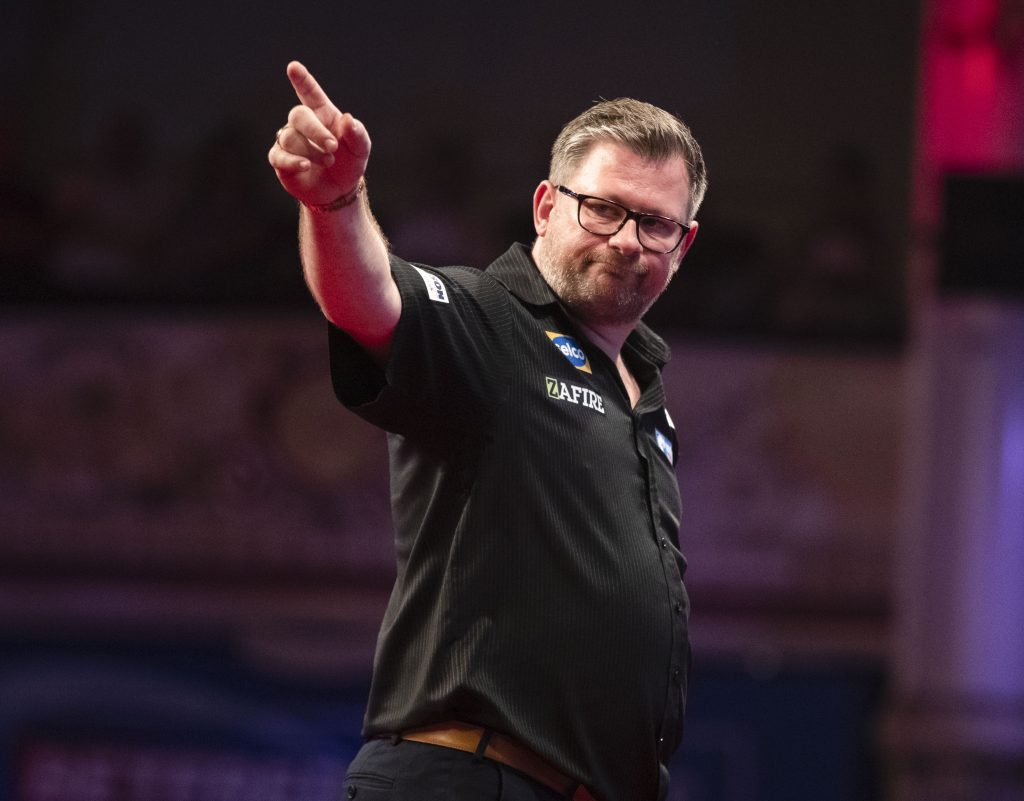
We know it happens that the player with the lower average wins sometimes, but all other things being equal you’d expect players to be on each side of that coin roughly the same amount of times. Wade and Cullen have won strong majorities of the matches they’ve been involved in when this anomaly has occurred. All other things are not equal, but why?
Those involved in high numbers of average-defying matches over the same period, at the opposite end of the spectrum, include Chris Dobey, Ian White and Dave Chisnall. Between them they have lost 91 matches with higher averages than their opponents (Chisnall 32, White 30, Dobey 29) since 2020. Dobey at least has had his fair share of games in which he has turned the tables, winning with a lower average on 22 occasions, whereas Chisnall has only managed this 14 times.
Most PC Matches Won with Inferior Average (since 2020)
| Joe Cullen | 28 |
| James Wade | 27 |
| Ryan Searle, Adrian Lewis | 24 |
| Darius Labanauskus, Ryan Joyce | 23 |
| Luke Humphries | 22 |
| Ricky Evans, Keegan Brown | 21 |
Most PC Matches Lost with Superior Average (since 2020)
| Dave Chisnall | 32 |
| Ian White | 30 |
| Chris Dobey | 29 |
| Ross Smith | 28 |
Dobey and Chisnall are 14th and 15th for averages on Tour in that timeframe (Dobey was 5th in 2021 and Chisnall is 12th in 2022). Chisnall and White both haven’t won a title and Dobey has won two. Searle, van Duijvenbode, Cullen, Wade, Dolan and Noppert are all multiple winners sitting below Chisnall and Dobey in those averages standings.
One obvious thing the three have in common is that they have all been comparatively weak on doubles over the study period – none of them make the top 32 in the world. There is a significant disparity between their rankings for averages and their rankings for doubling. Weak doubling seems a blatant answer for the trend of losing with superior numbers and provides a clear contrast to point to in comparison to someone like Wade, who is the best in the business in that department. It can’t be the only factor at play though, as we saw when looking at some other players at one end or the other.
Ross Smith has a depressing record of losing with a higher average. Smudger has lost 28 times with a higher average and won only 12 times with a lower average, and yet, he is 11th in the world on doubles in that time. Admittedly, some of those 28 have come in 2022 when he has struggled more on the outer ring. Ricky Evans has the best record at coming out on top in matches he has been involved in when the lower average has won, of anybody to be involved in 30 or more such matches. Evans is 50th in the world on doubles over that period. It is hardly a rule of thumb. What these two examples and others show, is that putting the phenomenon down to general double success on its own, doesn’t stack up.
That said, Wade’s prowess on doubles is so superbly consistent that it surely has a sizeable impact on his ability to frequently defy the logic. He has been No.1 in the World for checkout percentage the last three years running and even in a year like 2022 when he hasn’t quite been at it, he’s still in the top 5. Being the most reliable at lower value targets may not be too flattering for the averages, like being the most reliable at treble 20 will be, but it more than compensates in the overall determination of success. This isn’t the case with Cullen though – he is 39th on checkout stats since the beginning of 2020 and 32nd in 2022. How does he do it?
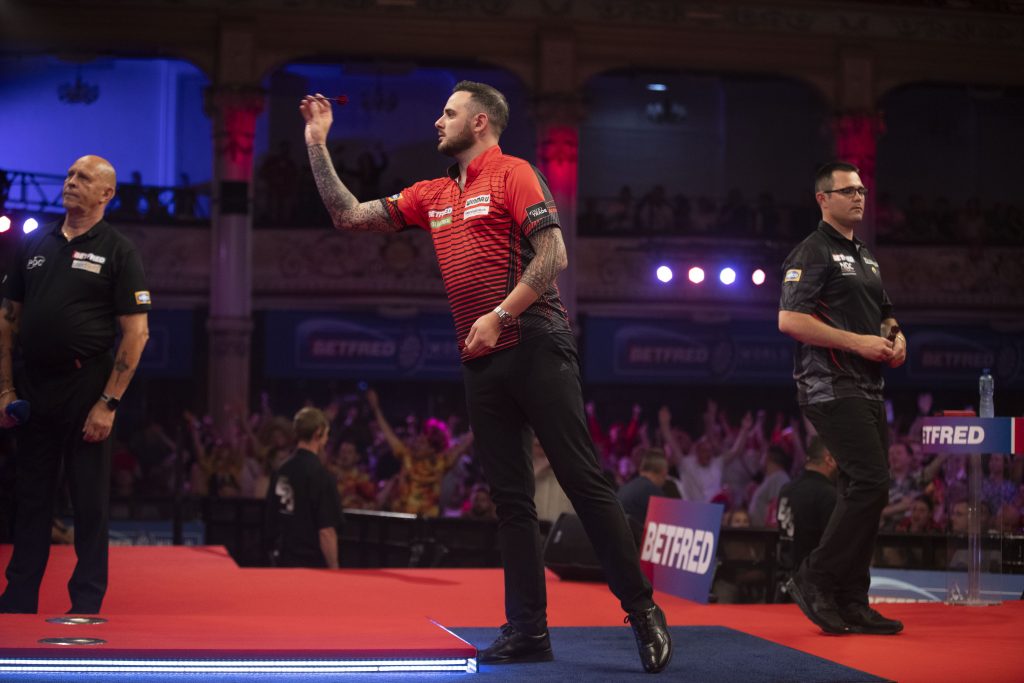
Pundits talk a lot about timing, and Michael van Gerwen is of course renowned for using the phrase “doing the right things at the right moments”. As of now, nobody embodies this more than The Rockstar. Whether a player’s tendency to time their form optimally is explainable by psychological or physical factors (bottle, inner strength, stamina) is speculative but there is no doubting some players do it more than others. Timing is difficult to quantify, and there are several measures that we capture at Darts Orakel to examine for clues.
To consistently win when below your best or when being outscored, holding throw is likely to be key. Not easily conceding the advantage is something Wade has been viewed as a master of. Cullen is in the top 5 on this metric, and in the Premier League he was one of only two players (Clayton the other) to go through an entire night in the group phase without dropping throw.
We also track players’ averages in legs when they are one away from winning a match and on this metric, Cullen again makes the top 10. In 2022 he is averaging more than two points higher in legs when throwing for the match, than all other legs. His average in deciding legs is higher by the same margin – the Masters champion is unlikely to wilt when trying to get over the line. This doesn’t give much insight into how players might hack the mechanics of timing though – nobody can really decide which legs they play well in, or can they? If you believe in the impacts of exploring the psychological side of the game, perhaps interventions of that nature can influence it.
Three-dart finishes (99 & 101+) – those odds-against, outside pokes that are so hurtful and often come when far behind in a leg on an opponent’s throw, are also something Cullen excels at – 9th of all Tour Card holders in 2022. Add to that, the fact he’s one of the biggest 180 hitters, and he can rarely be considered dead and buried in a leg.
Three-dart finish success correlates strongly with winning (and is obviously linked to overall double hitting), but is something that can actually be practiced, unlike holding your throw. Those half chances that can be so pivotal in saving a leg or pinching one out of nowhere to grab a break, require multiple switching of targets that will be more or less alien to a player depending on how familiar they are with the sequence. Cullen and Wade are also great exponents of managing legs to leave their preferred sections of the board a disproportionate amount of time, which over lots of matches must count for something by providing that subconscious familiarity of a sequence or an area of the board at a key moment.
Are these the reasons Cullen is able to buck the trend? Who knows?
Will the trend continue? Or will it even out like many other random patterns of numbers? In the case of James Wade, it seems to have gone on a long time.
Editorial Staff


